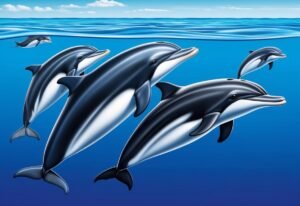Habitat Fragmentation: A Growing Threat to Wildlife

Habitat fragmentation, caused by human activities, splits large natural areas into smaller patches, negatively impacting ecosystems and wildlife globally.

Habitat fragmentation, caused by human activities, splits large natural areas into smaller patches, negatively impacting ecosystems and wildlife globally.

Nigeria, home to over 250 ethnic groups, is known for its vibrant and unique culture shaped by diverse languages, traditions, and rich history.

Przewalski's horses, the last truly wild horse species, have made a remarkable comeback from near extinction and are now thriving in Mongolia and China.

The ocean looks blue because water absorbs red, orange, and yellow light while reflecting blue light; depth, particles, and plants also affect its color.

Bulls don't hate red; they are colorblind to red and green. They charge due to the movement of the cape, not its color. The red cape is used mainly for tradition and to hide bloodstains.

The world's quietest room, Microsoft's anechoic chamber, has a sound level of -20.35 decibels and enables people to hear their own body noises; it's used for scientific tests and product improvements.

Most experts say there's no proof of a highly advanced society 12,000 years ago, despite interesting discoveries and popular theories in books and media.

The mimic octopus, discovered in 1998, is a small cephalopod in the Indo-Pacific that changes its look and behavior to mimic over 15 sea animals.

The wheel, invented around 3500 BC in Mesopotamia, revolutionized transportation and technology, impacting many cultures and still essential today.

Dolphins are intelligent and playful, but interactions can turn aggressive due to stress, protection of young, or mistaking humans for competitors; respect is essential.